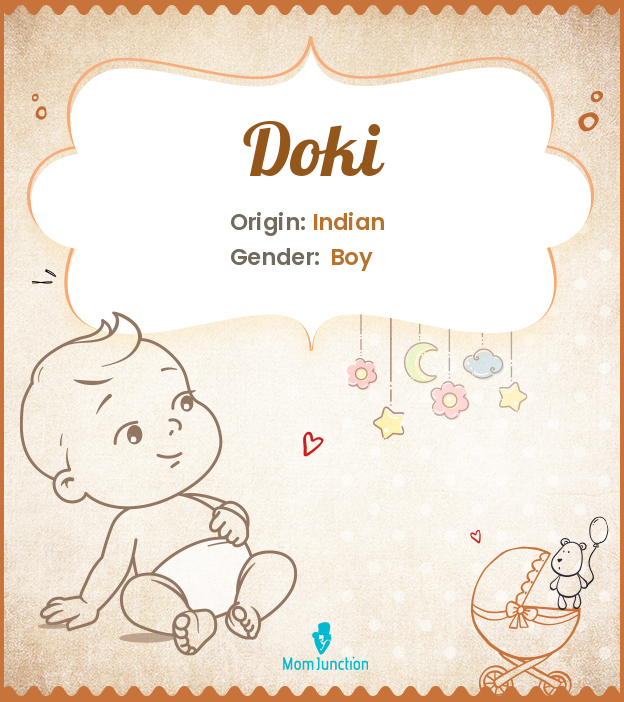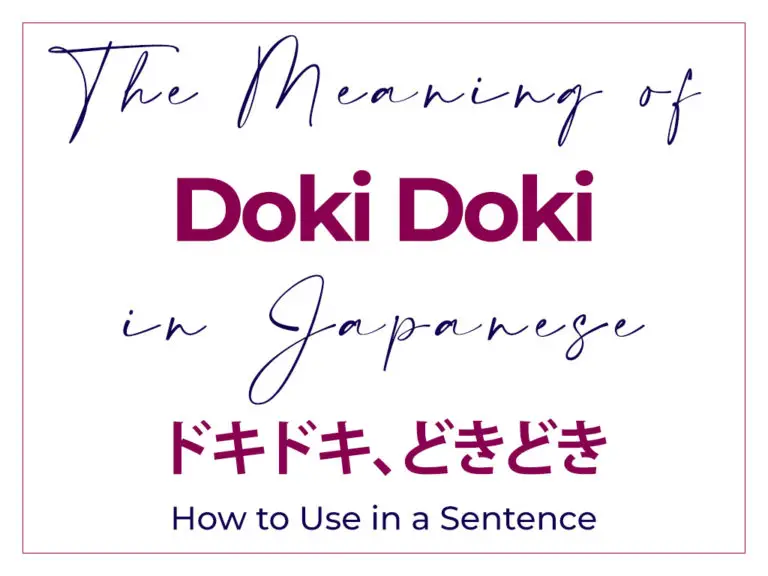The term "doki" has captured the attention of many around the world, especially those interested in Japanese language and culture. While it may seem simple at first glance, its meaning runs deeper than most realize. In this article, we will explore the true essence of "doki," its cultural significance, and how it is used in various contexts.
Have you ever felt your heart race when you see someone special or experience an exciting moment? In Japanese, there's a word that perfectly encapsulates this sensation: "doki." This term has become increasingly popular, not only in Japan but also globally, thanks to the influence of anime, J-pop, and Japanese dramas.
As we delve into the world of "doki meaning," we will uncover its origins, cultural importance, and how it has evolved over time. Whether you're a language enthusiast, a fan of Japanese pop culture, or simply curious about this heartfelt expression, this article will provide you with valuable insights.
Read also:Lasirena69 Violet Myers A Comprehensive Guide To Her Life Career And Achievements
Table of Contents
- Introduction to Doki Meaning
- Etymology and Origins of Doki
- Cultural Significance of Doki
- How Doki is Used in Everyday Life
- Doki in Pop Culture
- Variations and Similar Expressions
- Psychological Aspects of Doki
- Comparing Doki with Other Languages
- Examples of Doki in Sentences
- Conclusion and Takeaways
Introduction to Doki Meaning
At its core, "doki" is an onomatopoeic word that represents the sound of a heartbeat. It is often used to describe the sensation of excitement, nervousness, or love. This term is especially popular in romantic contexts, where it signifies the fluttering of the heart when you encounter someone special.
Why Is Doki Important?
The importance of "doki" lies in its ability to convey complex emotions through a single word. In a culture that values subtlety and indirectness, "doki" serves as a powerful tool for expressing feelings without being overly explicit. It is a word that resonates with people of all ages and backgrounds, making it a universal expression of emotion.
Who Uses Doki?
While "doki" is most commonly associated with younger generations, it is used by people of all ages in Japan. From schoolchildren to adults, everyone can relate to the sensation it describes. Its versatility makes it a favorite among anime fans, musicians, and writers alike.
Etymology and Origins of Doki
The word "doki" originates from the Japanese language, where it is written as ドキ (in katakana) or どき (in hiragana). It is an onomatopoeic term that mimics the sound of a beating heart. Over time, it has evolved to represent not just the sound but also the emotional state associated with it.
Historical Context
In ancient Japanese literature, the concept of a racing heart was often used to depict moments of passion or danger. While the word "doki" itself may not have been used, the sentiment behind it can be traced back centuries. As Japanese culture evolved, so did the language, leading to the creation of terms like "doki" that capture these emotions succinctly.
Cultural Significance of Doki
Understanding the cultural significance of "doki" requires an appreciation of Japanese values and traditions. In Japan, emotions are often expressed through indirect means, and "doki" serves as a bridge between the heart and words. It allows people to communicate their feelings without being overly explicit, which aligns with the cultural emphasis on harmony and restraint.
Read also:United Dairy Farmers Your Trusted Source For Fresh And Highquality Dairy Products
Role in Relationships
In romantic relationships, "doki" plays a crucial role in expressing love and attraction. It is often used in love letters, songs, and conversations to convey the excitement of meeting someone special. This makes it an integral part of Japanese courtship rituals and expressions of affection.
How Doki is Used in Everyday Life
While "doki" is commonly associated with romance, its usage extends beyond that. People use it to describe any situation that causes excitement or nervousness, such as meeting a celebrity, attending a job interview, or riding a roller coaster. Its versatility makes it a popular choice in casual conversations.
Common Phrases
- Doki doki: A doubling of the word to emphasize the intensity of the sensation.
- Doki shita: A phrase meaning "I felt doki" or "My heart raced."
- Doki suru: A verb form meaning "to feel doki" or "to have a racing heart."
Doki in Pop Culture
The influence of "doki" can be seen in various forms of Japanese pop culture, including anime, manga, and music. Characters often express their emotions using this term, making it relatable to audiences worldwide. It has also been incorporated into song titles, lyrics, and even product names, further cementing its place in popular culture.
Anime and Manga Examples
In anime and manga, "doki" is frequently used during romantic scenes to highlight the characters' emotional states. It serves as a visual and auditory cue for viewers, helping them connect with the story on a deeper level. Some popular series that feature "doki" include "Your Lie in April," "Kimi ni Todoke," and "Love Soaked Days."
Variations and Similar Expressions
While "doki" is the most well-known term for a racing heart, there are several variations and similar expressions in Japanese. These include "pon" (used to describe a light-hearted excitement) and "shiveru" (used to describe a shiver of excitement). Each of these terms adds nuance to the language, allowing speakers to convey a wide range of emotions.
Comparison with Western Expressions
In English, expressions like "my heart skipped a beat" or "I'm all aflutter" can be considered equivalents of "doki." However, these phrases often carry a more explicit connotation, whereas "doki" maintains a level of subtlety that is characteristic of Japanese communication.
Psychological Aspects of Doki
From a psychological perspective, "doki" represents the physiological response to excitement or nervousness. When we experience these emotions, our hearts beat faster, and we may feel a fluttering sensation in our chests. This reaction is universal, but the way it is expressed can vary across cultures.
Emotional Intelligence
Understanding and expressing emotions like "doki" is an important aspect of emotional intelligence. It allows individuals to connect with others on a deeper level and fosters empathy and understanding. In Japanese culture, where emotional expression is often subdued, "doki" provides a safe and relatable way to share feelings.
Comparing Doki with Other Languages
While "doki" is unique to the Japanese language, similar expressions exist in other languages. For example, in Spanish, "mi corazón late rápido" (my heart beats fast) conveys a similar sentiment. However, the cultural context and nuances of these expressions can differ significantly, highlighting the importance of understanding language within its cultural framework.
Global Influence
As globalization continues to bring cultures closer together, terms like "doki" are gaining popularity worldwide. Fans of Japanese pop culture have embraced this word, incorporating it into their daily vocabulary. This cross-cultural exchange enriches our understanding of emotions and how they are expressed across different languages.
Examples of Doki in Sentences
Here are some examples of how "doki" can be used in sentences:
- When I saw him for the first time, my heart went doki doki.
- I felt doki shita when I received the job offer.
- She said doki doki every time she saw her favorite idol on stage.
Conclusion and Takeaways
In conclusion, "doki meaning" goes beyond just the sound of a beating heart. It represents a universal human experience that transcends cultural boundaries. By understanding its origins, cultural significance, and usage, we can appreciate the depth and richness of the Japanese language.
We invite you to share your thoughts and experiences with "doki" in the comments below. Whether you're a long-time fan of Japanese culture or a newcomer to the language, your insights are valuable. Don't forget to explore other articles on our site for more fascinating topics related to language and culture.
References:
- Japanese Language and Culture: A Comprehensive Guide
- Exploring Onomatopoeia in Japanese
- Cultural Expressions in Japanese Pop Culture


